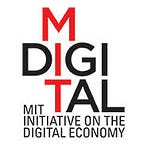How AI Can Improve Human Decision-making
If algorithms can improve human’s playing strategies at the game of Go, researchers say AI can lead us to make good business decisions, too.
By Paula Klein
Much discussion focuses on the potential for AI to displace workers and hinder human thinking. But what if AI can help humans make better decisions and improve business outcomes and performance? Those are some of the questions studied by a research team including MIT postdoctoral associate, Sukwoong Choi.
At a recent MIT IDE seminar, Sukwoong explained how researchers used an AI-powered Go program (APG) to evaluate the impact of AI. Go is a highly complex and challenging board game requiring strategic thinking to overtake an opponent. The AI program can “surpass the best human knowledge and skills accumulated over thousands of years,” according to the research paper.
“To investigate the impact of APGs, we compared human [game] moves to AI’s superior solutions,” to see how AI instructions might be applied outside of the Go environment, he said.
Empirical analysis of 750,990 moves in Go games showed that when AI programs were used to train professional players it “substantially improved the quality of their moves and increased their probability of winning by reducing errors and the magnitude of mistakes.” (See figure 1).
Importantly, the researchers conclude:
“The decisions made in games are similar to those made by managers and policymakers [because] both use similar intuitive techniques under uncertainty and time constraints.”
AI as Human Instructors
In fact, the researchers see AI becoming more than a human assistant. It could take on an instructional role, training and educating human professionals to make better decisions in fast-paced, uncertain environments. Advancements in AI as an instructional tool — as demonstrated by the Go program — have the potential to improve human performance through self-learning and by helping humans make inferences based on prior learning, Sukwoong told seminar attendees.
Organizations such as hospitals, banks, and marketing divisions have begun to use AI algorithms for jobs that require accurate judgment, for designating work schedules, and for analyzing customer credits or employee performance.
“Our main prediction is that AI will increasingly train human professionals and improve the quality of their decisions
— especially when the performance of AI is superior to that of humans and when tasks are complex and uncertain,” Sukwoong said.
There are several key benefits to be gained. For instance, AI can analyze data and find behavioral patterns needed for insightful tasks that usually rely on human intuition. Secondly, AI obtains predictions and judgments with high accuracy, and that accuracy increases with the number of training sessions and the quantity of data. In addition, models using AI algorithms improve over time to achieve even better performance. All of these characteristics enable AI to outperform humans not only in repetitive work and recognition tasks, but also in some creative tasks, according to the study.
Context, Access Matter
At the same time, the researchers note that the results from the professional Go industry may not be readily applicable to other contexts at the same level. Since these contexts and applications are broadening, more study is needed. Additionally, not everyone may enjoy benefits equally. “We find that openness to new technology and the ability to utilize it could contribute to reaping gains from AI,” Sukwoong said. The research also finds that younger players benefited more from APG than did older players. “Further investigation is called for on differential access to and utilization of AI and the potential inequality in outcome.”
Additionally, careful consideration is needed to determine where to adopt AI and to what extent. Professional Go game decisions are made under well-defined rules of the game, and while managers also face game-like rules and restrictions, managers have much more discretion in decision making than Go players. And for now, discretion isn’t something humans are eager to cede — even to savvy AI programs.
